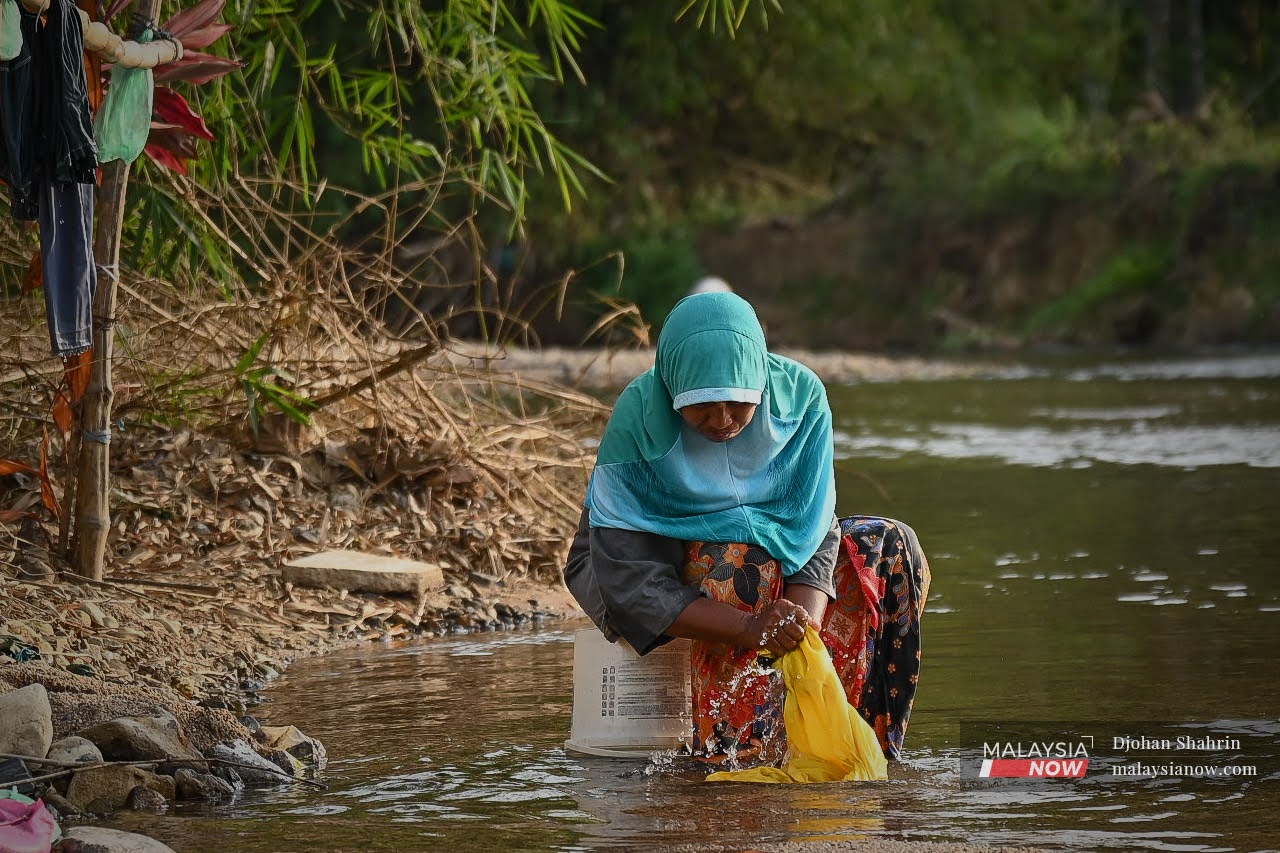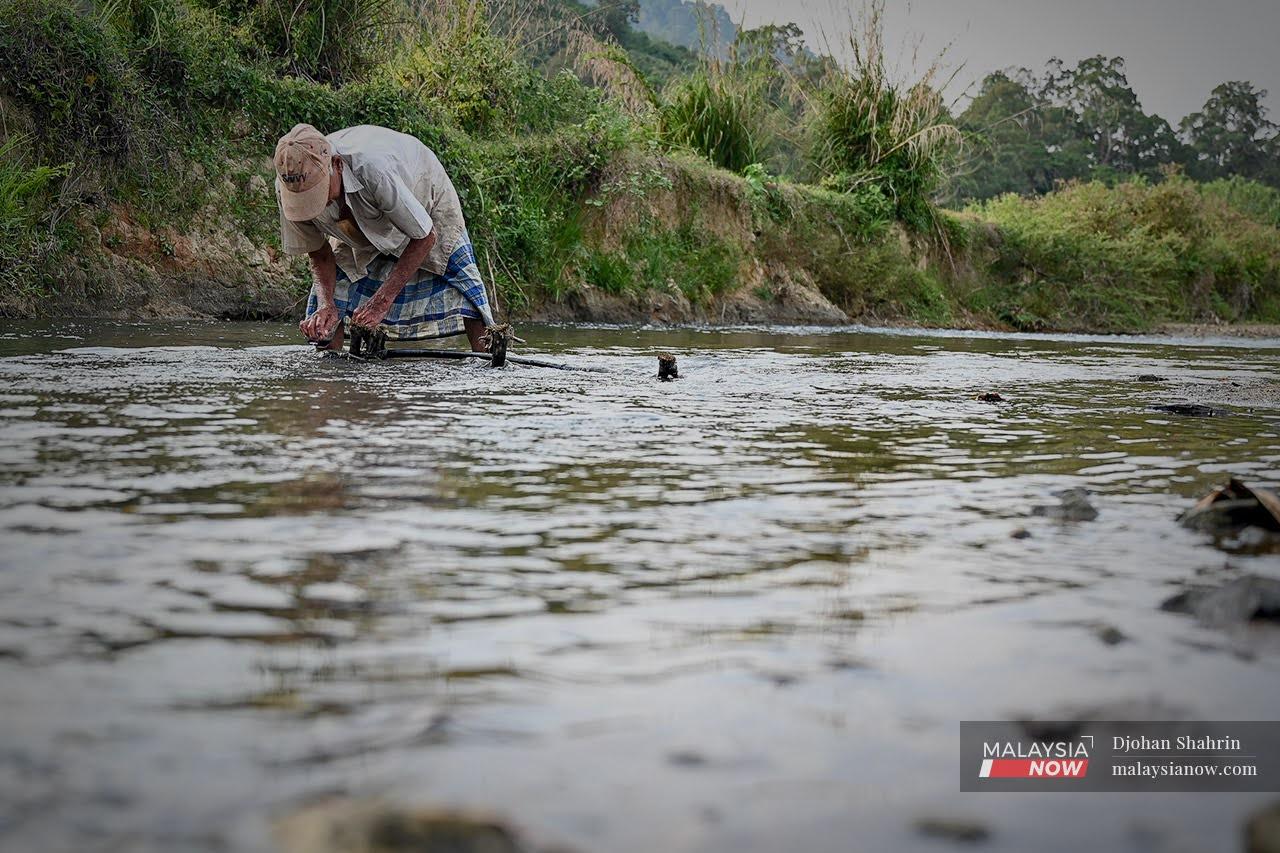In rural Kedah, clean water supply still a pipe dream for villagers
They have had to resort to creating their own pipeline in addition to depending on the river for the water they need each day.
Just In
Malaysia may have achieved independence more than 60 years ago, but many pockets of society are still struggling to get by without the most basic of amenities such as running water in their homes.
At Kampung Iboi, a village in rural Baling, a district in Kedah bordering Perak and Thailand, water rationing is a fact of life. Here, villagers only have running taps from 12am to 2pm.
They have lodged complaints with state water utility company Syarikat Air Darul Aman (Sada) time and again, but are told that low water pressure at the pumping station is the source of the problem.
Malik Arshad, who oversees the village’s water supply, said the condition of Sada’s pumping station is at Level 4, which is classified as dangerous.
“The Baling district officer met with Sada to discuss the situation after the frequent water disruptions,” he told MalaysiaNow.
“When questioned on how to upgrade the pumping station, the Sada representative said the matter should be raised to the state government.”

Unable to rely on a steady supply of water from Sada, the villagers have taken matters into their own hands. At Kampung Iboi, every home has two taps – one from Sada and the other from the local committee which manages the villagers’ alternative water supply.
“We have permission from Tenaga Nasional Bhd to use a hydraulic pump station to supply the villagers with running water,” Malik said.
But this water source comes with problems of its own as well. Musang king durians are being cultivated near the water catchment area. Between this and the logging activities which villagers say take place in the forest around their homes, the river water is often polluted.
“It is hard for us to get additional clean water supply from Sada within 24 hours,” Malik added.
‘No clean water’
Zaini Harun, who operates a food stall, has to keep containers of water in reserve in case his supply runs out while he’s working.
“The villagers’ main water source is the river. Water is pumped to the houses similar to the regular water service, but everything is handled by the locals themselves.”
But sometimes there is a heavy downpour which churns up the mud in the river.
“Then the water turns muddy. Once I was doing my laundry and without me realising it, red, muddy water came pouring into the washing machine and damaged my clothes.”
When this happens, there is no clean water supply in the village.

It is the same story in the village of Kampung Bukit Sebelah where villagers use water from the river for their chores as a matter of course.
Neng Sahab, who has lived there for three decades, said Sada sends water tankers to the village twice a week.
But this does not solve anything, he told MalaysiaNow.
“Many people come to Kampung Bukit Sebelah but the result is still the same. We cannot get water supply and we still need to rely on the river.”
This doesn’t come cheap as villagers need to fork out their own money to buy the equipment needed to pump water from the river to their homes.
Rahimah Yaakub, 70, has to depend on his children and grandchildren to pump water from the river.
“I am old and cannot go down to the river or walk up the steps while carrying buckets to put at the pumping tube,” he said.

Over at Kampung Iboi, Mokhtar Mohd Piah said villagers do the same. He has spent RM2,000 so far buying a water pumping machine, pipes and a tank so that his family can go about their daily chores.
“I live with 10 other family members so it is important to have enough water supply.”
He spends another RM100 or so each month for maintainance of the equipment or to repair the damage if there is a leak.
Sada spokesman Anas Aidi Md Rozai however said the utility company had never imposed water rationing as claimed in several locations.
“Sada only provides the service to the residents,” he said. “If it involves upgrading the pumping station, the matter needs to be referred to the state.”
He acknowledged that Sada had been informed of the problems but said the solution for now would be the provision of water tankers to the affected areas.
Subscribe to our newsletter
To be updated with all the latest news and analyses daily.
